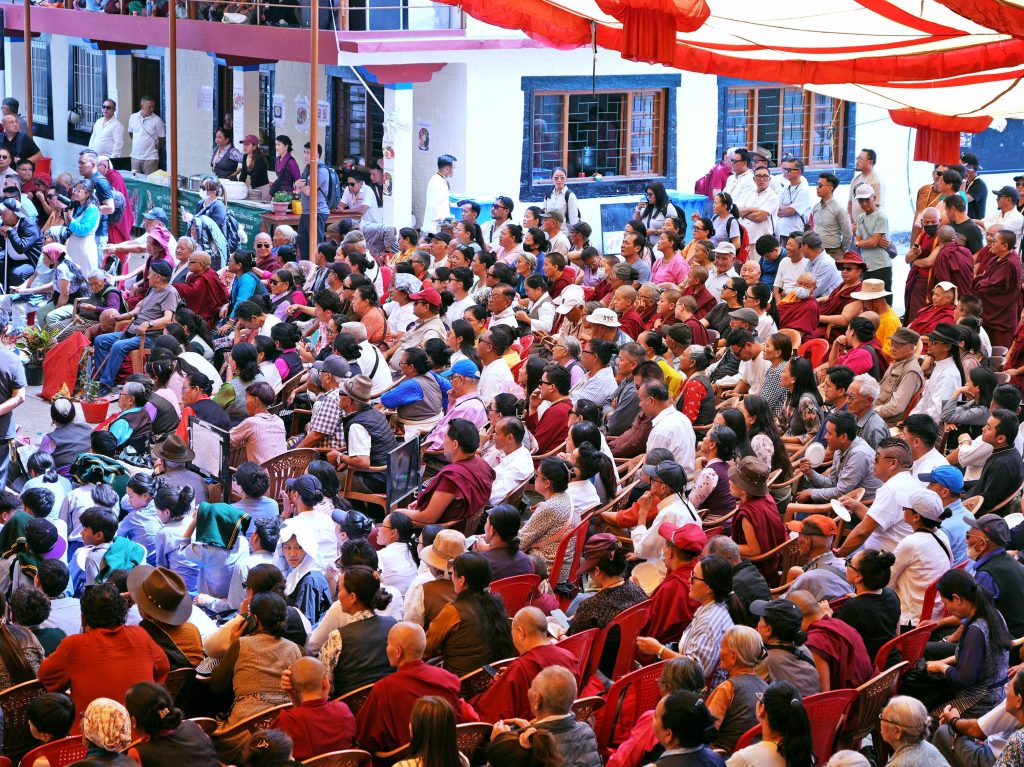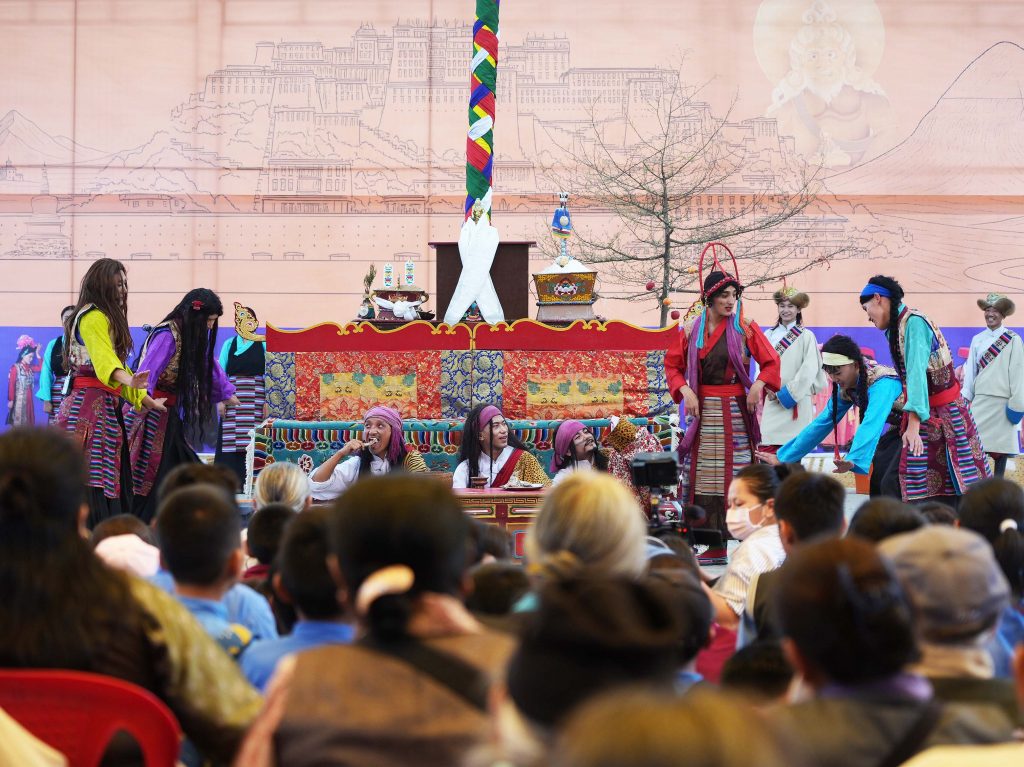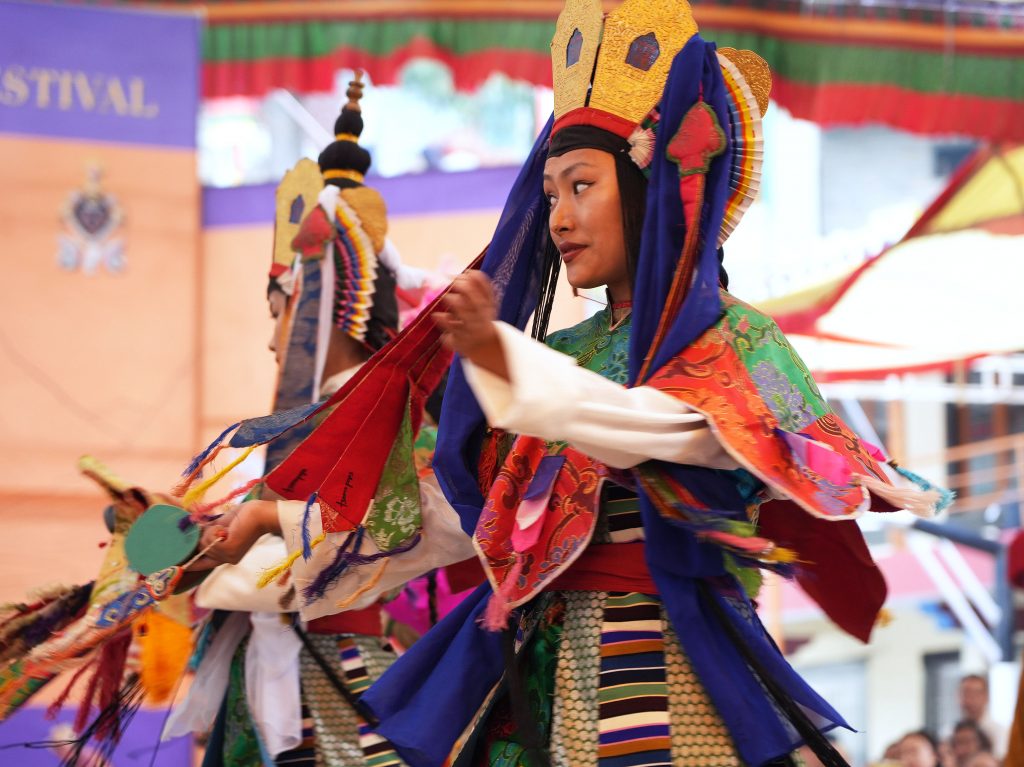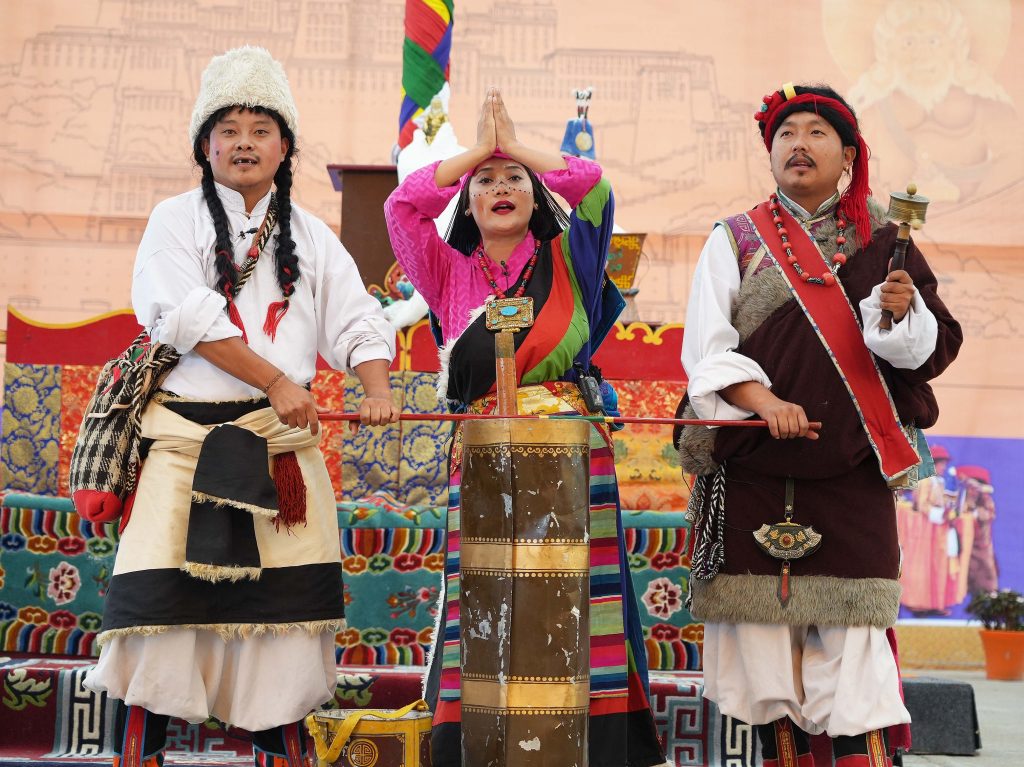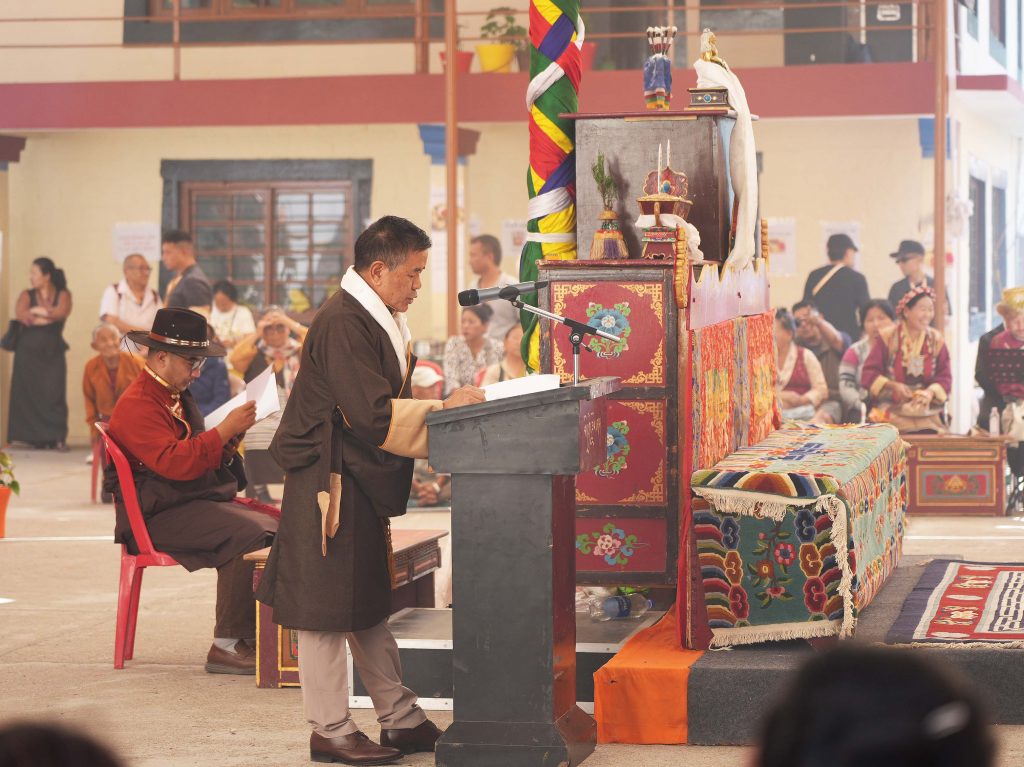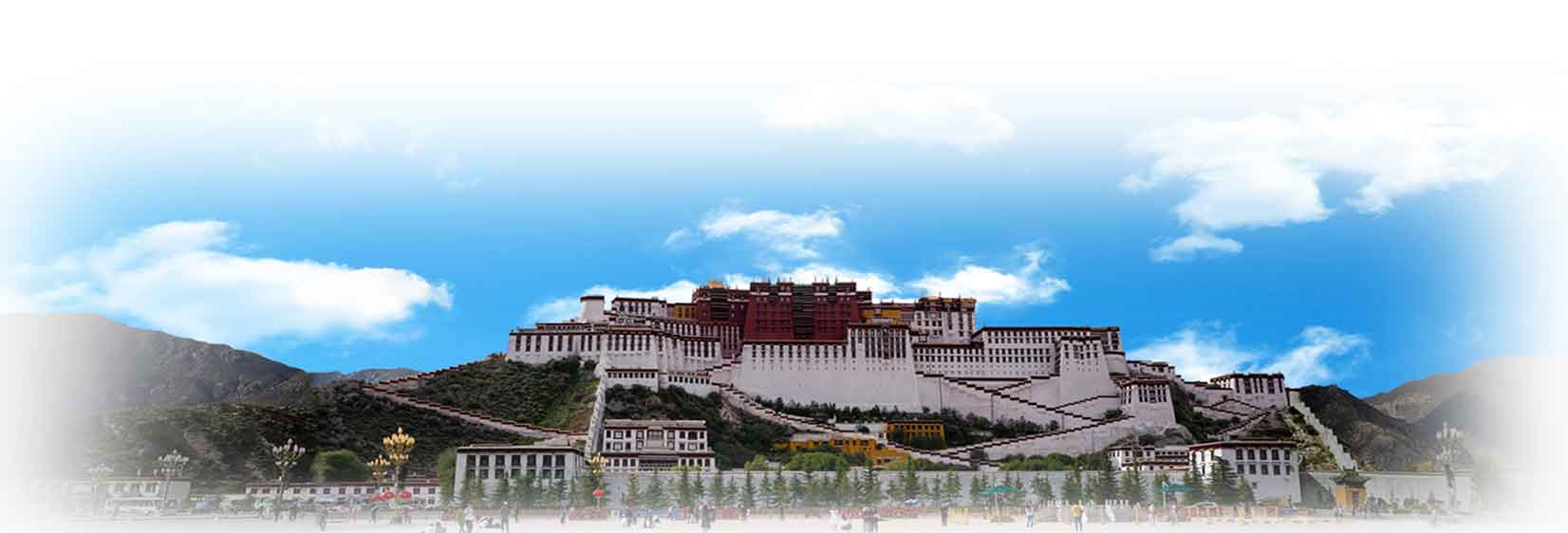ཁ་ཉིན་ཕྱི་ཚེས་ ༢༠ ཉིན་བོད་ཀྱི་ཞོ་སྟོན་རྒྱས་པ་ཐེངས་ ༢༨ པའི་མཇུག་སྡོམ་མཛད་སྒོའི་འཚོགས་གནང་བ་དང་། མཛད་སྒོའི་ཐོག་སྐུ་མགྲོན་གཙོ་བོ་༸སྐྱབས་རྗེ་ཀུན་བདེ་གླིང་རྟ་ཚག་རྗེ་དྲུང་མཆོག་སྤྲུལ་རིན་པོ་ཆེ་མཆོག་དང་། དམིགས་བསལ་སྐུ་མགྲོན་རང་གཞུང་བོད་མིའི་སྒྲིག་འཛུགས་ཀྱི་སྲིད་ཚབ་སྐོུ་རྒྱ་རི་སྒྲོལ་མ་མཆོག ཆེ་བསྟོད་སྐུ་མགྲོན་དུ་༸སྐྱབས་རྗེ་གནས་ཆུང་སྐུ་རྟེན་རིན་པོ་ཆེ་མཆོག་དང་མཆོག་སྤྲུལ་ལྷ་རྒྱལ་རིན་པོ་ཆེ་མཆོག་གནད་ཞུ་གནང་འདུག དེ་བཞིན་སྐུ་མགྲོན་དུ་བོད་མིའི་སྒྲིག་འཛུགས་ཀྱི་མང་གཙོའི་ཀ་བ་གསུམ་གྱི་མཛད་གཙོ་རྣམ་པ་དང་དྲུང་ཆེ་རྣམ་པ། དཔལ་ལྡན་དགའ་ལྡན་ཕོ་བྲང་གི་དྲུང་ཆེ་རྣམ་པ་དབུས་པའི་གཞུང་འབྲེལ་དང་གཞུང་འབྲེལ་མ་ཡིན་པའི་ཚོགས་སྡེ་ཁག་གི་འགན་འཛིན་དང་སློབ་གྲྭ་ཁག་གི་སློབ་སྤྱི་བཅས་རྒྱ་ཆེའི་མང་ཚོགས་སྟོང་ཚོ་གཅིག་ལྷག་འདུ་འཛོམས་ཀྱིས་བོད་ཀྱི་ཞོ་སྟོན་དུས་ཆེན་གྱི་མཛད་སྡོམ་མཛད་སྒོ་སྲུང་བརྩི་གནང་སོང་།
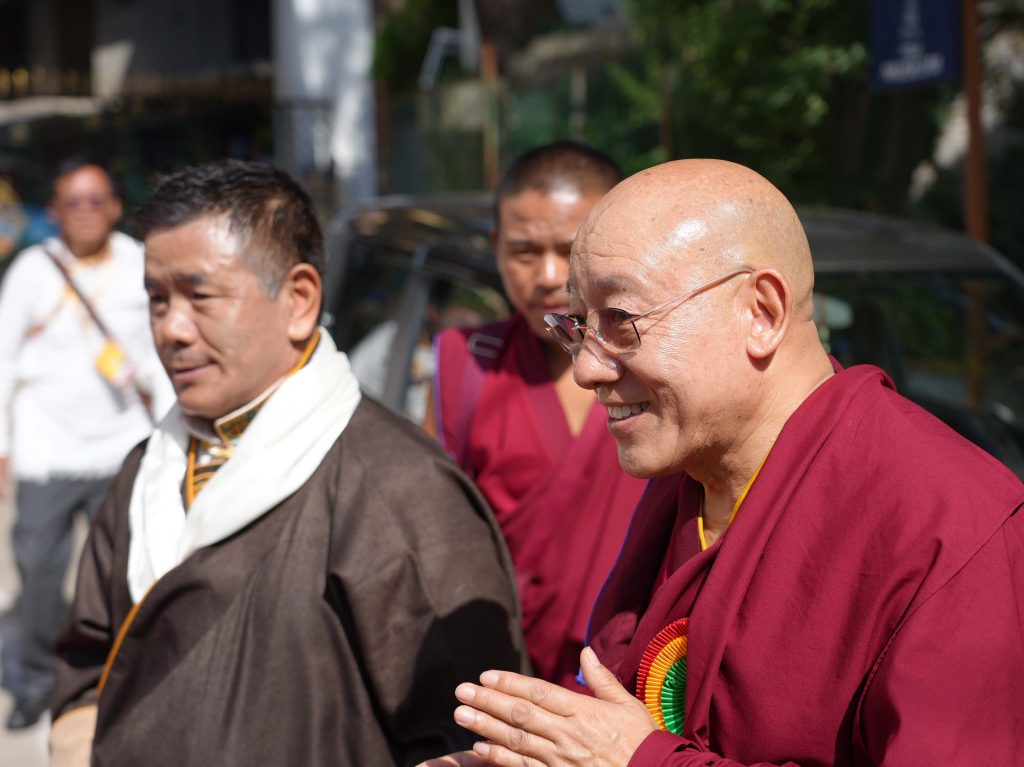
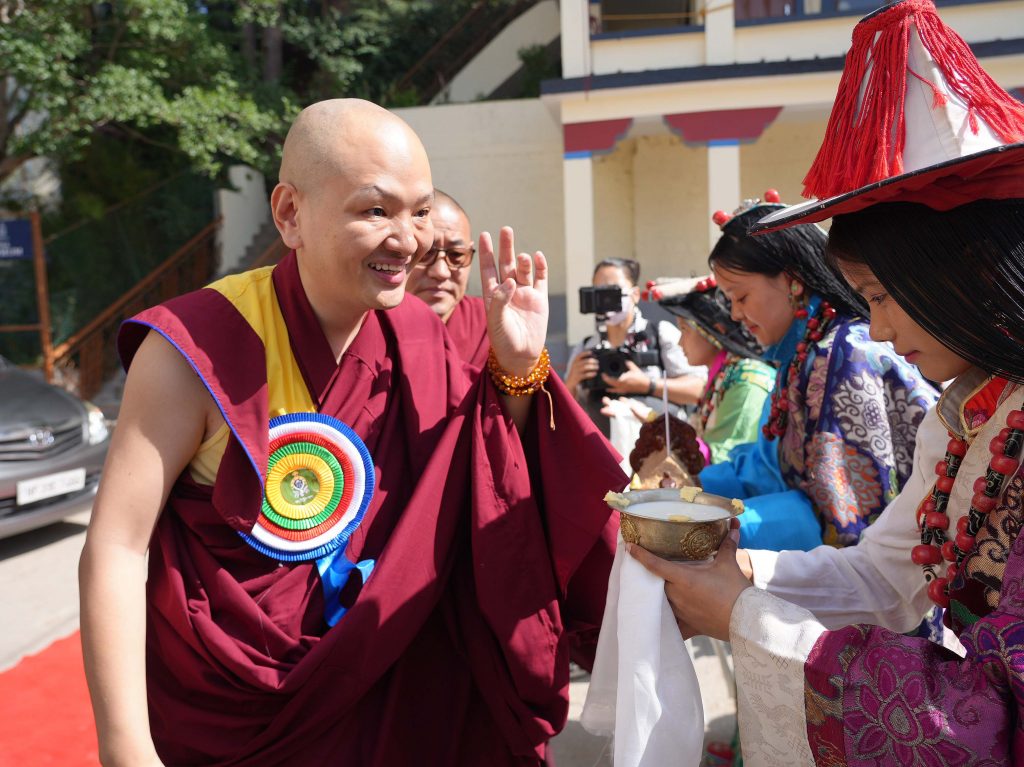
མཛད་སྒོའི་ཐོག་མར་བོད་ཀྱི་ཟློས་གར་ཚོགས་པའི་སྤྱི་ཁྱབ་འགན་འཛིན་དོན་གྲུབ་ཚེ་རིང་ལགས་ནས་ཞོ་སྟོན་མཇུག་སྡོམ་མཛད་སྒོའི་གསུང་བཤད་ནང་། སྔར་ལམ་ཡིན་ན་བོད་ཀྱི་ཞོ་སྟོན་དུས་ཆེན་སྲུང་བརྩི་གནང་རྒྱུར་རྒྱུན་གྲོན་གང་ཙམ་ཞིག་ཨ་རི་གཞུང་གི་རོགས་དངུལ་ (USAID) ལས་འཆར་འོག་བཀའ་འཕྲོལ་ཐོབ་སོན་བྱུང་ཡོད་ནའང་ཨ་རི་སྲིད་གཞུང་གསར་པའི་(USAID) རོགས་དངུལ་མཚམས་འཇོག་གནང་ཟིན་པར་བརྟེན་བོད་ཀྱི་ཟློས་གར་ཚོགས་པའི་ངོས་ནས་ཐབས་འཚོལ་བྱས་དང་བྱེད་བཞིན་པའི་ཐོག་བོད་ཀྱི་ཞོ་སྟོན་དུས་ཆེན་སྲུང་བརྩི་ཞུ་རྒྱུར་འབད་བརྩོན་ཞུས་པ་དེ་བཞིན་མངོན་འགྱུར་བྱུང་ཡོད། གང་ལགས་ཞེ་ན་འདི་ལོར་སྤྱི་ནོར་༸གོང་ས་༸སྐྱབས་མགོན་ཆེན་པོ་མཆོག་བོད་ལུགས་ལྟར་སྐུ་ཡི་དགུང་གྲངས་ ༩༠ བཞད་པའི་གོ་སྟོན་རྟེན་འབྲེལ་འཁེལ་གྱི་ཡོད་པར་སོང་། ང་ཚོ་བོད་ཀྱི་ཟློས་གར་ཚོགས་པ་གཙོས་ཕྱོགས་མཐའི་ལྷ་མོ་ཚོགས་པ་ཡོངས་ནས་བོད་ཀྱི་ཞོ་སྟོན་བཞུགས་སྒར་དུ་སྲུང་བརྩི་ཞུ་ཐུབ་པ་བྱུང་སོང་།
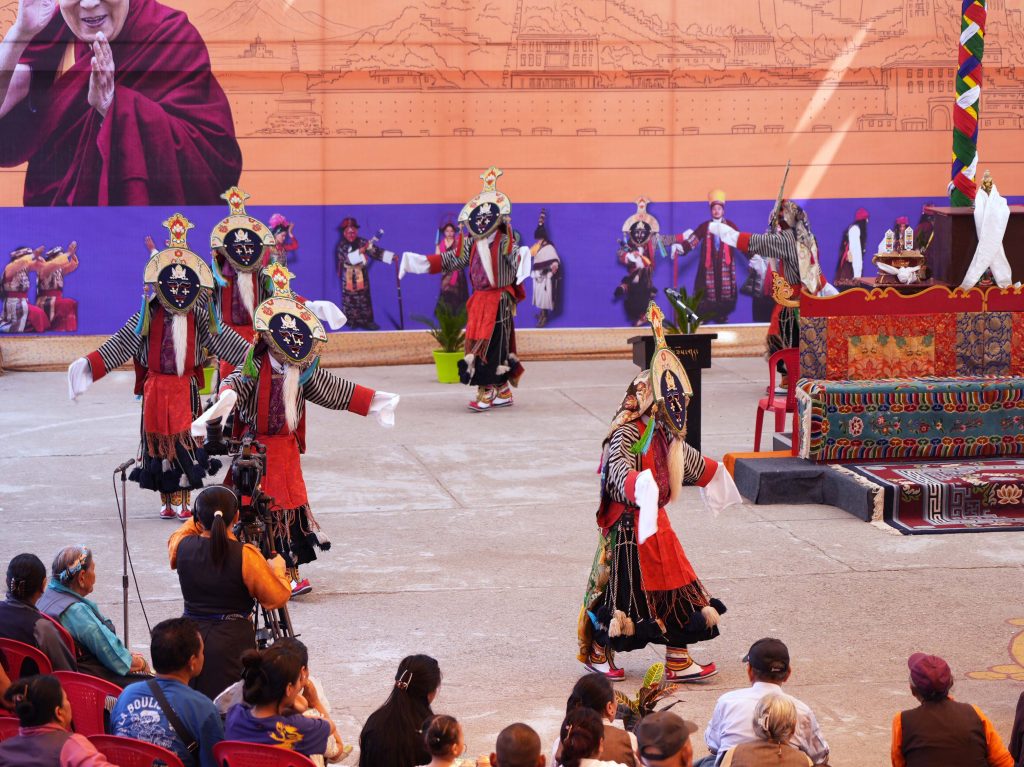
ལྷག་དོན་དུ་ཁ་ཉིན་ཕྱི་ཚེས་ ༡༠ ཉིན་བཞུགས་སྒར་རྒྱལ་བའི་ཕོ་བྲང་དུ་སྤྱི་ནོར་༸གོང་ས་༸སྐྱབས་མགོན་ཆེན་པོ་མཆོག་ནས་ལྷ་མོ་བ་ཡོངས་ལ་དམིགས་བསལ་༸གསེར་མཇལ་ཞུ་རྒྱུའི་གོ་སྐབས་བྱུང་བ་དང་ལྷ་མོའི་སྐྱིད་སྡུག་རེ་ནས་སྐུ་ཚབ་ཅིག་གིས་གསུང་ཐར་འབུལ་རྒྱུའི་གོ་བསྐལ་བཟང་པོ་ཞིག་བྱུང་ཡོད། དེ་བཞིན་༸རྒྱལ་བ་རིན་པོ་ཆེ་མཆོག་ནས་བཀའ་སློབ་རྣ་བའི་བདུད་བརྩིས་བྱིན་གྱིས་རླབས་ཏེ་དེ་རིང་ངོས་རང་ནོར་གླིང་དུ་སླེབས་པའི་ཐུགས་ཚོར་བྱུང་ཞེས་ཐུགས་དགྱེས་ཚོར་ཆེན་པོ་གནང་བ་ནི་ང་ཚོ་བོད་ཀྱི་ཟློས་གར་ཚོགས་པ་གཙོས་ལྷ་མོ་བ་ཡོངས་ཀྱི་ཚེ་བསོད་ཆེན་པོ་ཡིན། སླད་མ་འོངས་པར་རོགས་དངུལ་སོགས་དཀའ་ངལ་གང་ཞིག་བྱུང་ཡང་ང་ཚོས་བོད་ཀྱི་རིག་གཞུང་སྲུང་སྐྱོབ་ཞུ་ཆེད་ཐབས་ཤེས་ཡོད་རྒུ་རྩ་དྲུག་གིས་བོད་ཀྱི་ཞོ་སྟོན་དུས་ཆེན་སྲུང་བརྩི་ཞུ་ཐུབ་པ་གནང་རྒྱུ་དང་། ༸རྒྱལ་བ་དོན་གྱི་བདག་པོ་མཆོག་གི་བཀའ་དགོངས་བཞིན་བོད་ཀྱི་རིག་གཞུང་སྤྱི་དང་ལྷ་མོའི་ཟློས་གར་འཛིན་སྐྱོང་སྤེལ་གསུམ་མུ་མཐུད་ཞུ་རྒྱུའི་མཆོད་སེམས་བརྟན་པོ་ཡོད་ཅེས་ངོ་སྤྲོད་གསུང་བཤད་གནང་རྗེས་བོད་ཀྱི་ཟློས་གར་ཚོགས་པས་ལྷ་གཞུང་འགྲོ་བ་བཟང་མོ་ཉིན་འཁྱོངས་གཟིགས་འབུལ་ཞུས་གནང་སོང་། ལྷ་གཞུང་གཟིགས་འབུལ་གྲུབ་མཚམས་དེ་རིང་གི་དམིགས་བསལ་སྐུ་མགྲོན་དཔལ་ལྡན་བོད་མིའི་སྒྲིག་འཛུགས་ཀྱི་སྲིད་ཚབ་སྐུ་ངོ་རྒྱ་རི་སྒྲོལ་མ་མཆོག་ནས་རང་གཞུང་ཆོས་རིག་ལས་ཁུངས་ནས་ལྷ་མོའི་སྐྱིད་སྡུག་ཁག་རྒྱུན་གནས་སྲ་བརྟན་ཐུབ་ཐབས་སུ་མ་དངུལ་རོགས་སྐྱོར་ཧིན་སྒོར་ ༤༥༠༠༠། ཕྱག་རྟགས་དེ་བཞིན་ལྷ་མོའི་སྐྱིད་སྡུག་བཅུ་བཞིའི་ཚོགས་གཙོ་རྣམས་ལ་འབུལ་གནང་སོང་།
དེ་ནས་དེ་རིང་གི་སྐུ་མགྲོན་གཙོ་བོ་༸སྐྱབས་རྗེ་ཀུན་བདེ་གླིང་རིན་པོ་ཆེ་མཆོག་ནས་ཕྱོགས་མཐའི་ལྷ་མོ་ཚོགས་པའི་སྐྱིད་སྡུག་ནང་ལོ་ ༢༠ བསྟུད་མར་པྱག་ལས་གནང་མཁན་ཡོངས་ལ་བོད་མིའི་སྒྲིག་འཛུགས་ཆོས་རིག་ལས་ཁུངས་དང་བོད་ཀྱི་ཟློས་གར་ཚོགས་པ་མཐུང་ནས་གཟེངས་བསྟོད་ཕྱགས་འཁྱེར་ལྷ་མོ་ཚོགས་པའི་ཚོགས་གཙོར་བསྩལ་གནང་མཛད་རྗེས་༸སྐྱབས་རྗེ་རིན་པོ་ཆེ་མཆོག་ནས་བཀའ་སློབ་བཀའ་དྲིན་བསྐྱངས་གནང་མཛད་སྐབས། “བོད་ཀྱི་ཞོ་སྟོན་ཞེས་པ་ནི་ལོ་རྒྱུས་ཀྱི་དོན་སྙིང་ལྡན་ཞིང་རང་མི་རིགས་ཀྱི་གོམས་སྲོལ་དང་གཤིས་ལུགས་སོགས་མཚོན་པའི་ཁྱད་ཆོས་ཆེན་པོ་ལྡན་པ་ཞིག་རེད། དེ་ནི་དུས་རབས་བཅུ་བཞི་ནས་བོད་དུ་ལྷ་མོ་འཁྲབ་པའི་སྲོལ་དར་རྒྱས་བྱུང་ཞིང་རིམ་བཞིན་འཕེལ་རྒྱས་བྱུང་བ་རེད། དེ་བཞིན་ཀུན་བདེ་གླིང་རྟ་ཚག་སྐུ་ཐོག་གོང་མས་བོད་ཀྱི་ལྷ་མོའི་ཟློས་གར་ལ་ཐུགས་སྣང་ཆེན་པོ་གནང་འདུག་ལ་ལྷ་མོའི་ཟློས་གར་དེས་དམ་པའི་ཆོས་སུ་འཇུག་པའི་གདམས་པ་དང་འཇིག་རྟེན་མི་ཆོས་འཛིན་པའི་སློབ་གསོ་སོགས་རང་མི་རིགས་ཀྱི་ཐུན་མོང་མ་ཡིན་པའི་རིག་གཞུང་གི་བརྗོད་བྱ་བཟང་པོ་རྣམས་འཁྲབ་སྟོན་གྱི་ལམ་ནས་རྒྱུན་འཛིན་གནང་བཞིན་ཡོད།
དེ་ནས་བཙན་བྱོལ་དུ་ཕེབས་ཏེ་མི་རེ་ལྔའི་སོང་བ་དང་དེའི་ནང་བོད་ཀྱི་ཆོས་དང་རིག་གཞུང་གང་ཅིའི་ཐད་དངོས་གནས་དྲང་གནས་ཀྱིས་ཉམས་མེད་རྒྱུན་འཛིན་གནང་བ་མ་ཟད་སྤྱི་ནོར་༸གོང་ས་༸སྐྱབས་མགོན་ཆེན་པོ་མཆོག་གིས་བཀའ་དྲིན་ཉག་ཅིག་ལ་བརྟེན་ནས་མི་རབས་རྒན་པ་མང་པོ་ཞིག་གིས་ལྷ་མོའི་ཟློས་གར་རྒྱུན་གནས་སྲ་བརྟན་ཐུབ་ཐབས་སུ་སྐུ་ལས་ཞེ་དྲགས་བསྐྱོན་པར་སོང་ང་ཚོའི་གཟི་བརྗིད་དང་རྒྱལ་ཁ་ཞིག་ཆགས་ཡོད་པ་རེད། ལྷག་དོན་དུ་༸གོང་ས་རྒྱལ་བ་རིན་པོ་ཆེ་མཆོག་དགུང་ལོ་ ༩༠ ཕེབས་པའི་བཀའ་དྲིན་རྗེས་དྲན་སླད་བྱམས་བརྩེའི་ལོ་སྲུང་བརྩི་ཞུ་བ་དང་བསྟུན་བོད་ཀྱི་ཞོ་སྟོན་རྒྱས་པ་ཐེངས་ ༢༨ དེ་ཡང་བཞུགས་སྒར་དུ་བསྐོང་ཚོགས་ཐུབ་ཅིང་། དེའི་ནང་སློབ་ཕྲུག་བརྒྱ་ཆ་ ༥༠ ལྷག་བྱུང་ཡོད་པ་ནི་དངོས་གནས་དྲང་གནས་ཀྱི་རྒྱལ་ཁ་ཆེན་པོ་ཞིག་རེད་བཅས་བཀའ་སློབ་བཀའ་དྲིན་བསྐྱངས་གནང་མཛད་།
དེ་ནས་སྐུ་མགྲོན་གཙོ་བོ་མཆོག་ནས་ལྷ་མོ་ཚོགས་པའི་སྐྱིད་སྡུག་ནང་ཞབས་ལོ་ཉི་ཤུ་ལྷག་སོན་པའི་ལྷ་མོ་བ་རྣམས་ལ་གཟེངས་བསྟོད་ཕྱག་འཁྱེར་གསོལ་བསྩལ་གནང་གྲུབ་རྗེས་བོད་ཀྱི་ཟློས་གར་ཚོགས་པའི་འཁྲབ་སྟོན་འགན་འཛིན་བསྟན་འཛིན་ཕུན་ཚོགས་ལགས་ནས་ཐུགས་རྗེ་ཆེ་གསུང་བཤད་གནང་སོང་།
སྤྱིར་ད་ལན་བོད་ཀྱི་ཞོ་སྟོན་དེ་བཞིན་ཕྱི་ཟླ་ ༥ ཚེས་ ༧ ནས་ ༢༠ བར་ཉིན་གྲངས་བཅུ་བཞིའི་རིང་ལྷ་མོའི་སྐྱིད་སྡུག་ཁག་བཅུ་བཞིས་ལྷ་གཞུང་ཁག་མི་འདྲ་བ་བཅུ་གཅིག་གཟིགས་འབུལ་ཞུས་པ་དང་། ལྷ་མོའི་འཁྲབ་སྟོན་པ་ ༤༨༢ བཅས་ད་བར་ལྷ་མོའི་སྐྱིད་སྡུག་དང་ཚོགས་བཅར་བ་འདུ་འཛོམས་ཆེ་ཤོས་ཤིག་ཏུ་གྱུར་འདུག ཕྱི་ཚེས་ ༢༡ ནས་ལྷ་མོའི་སྐྱིད་སྡུག་ཁག་གི་འཁྲབ་སྟོན་པ་དང་ཚོགས་མི་རྣམས་རང་རང་གི་གནས་སུ་ཕྱིར་ལོག་བཞིན་འདུག་པས། འདི་ལོའི་ཞོ་སྟོན་དུས་ཆེན་རྒྱལ་ཁའི་ངང་ལེགས་གྲུབ་བྱུང་སོང་།
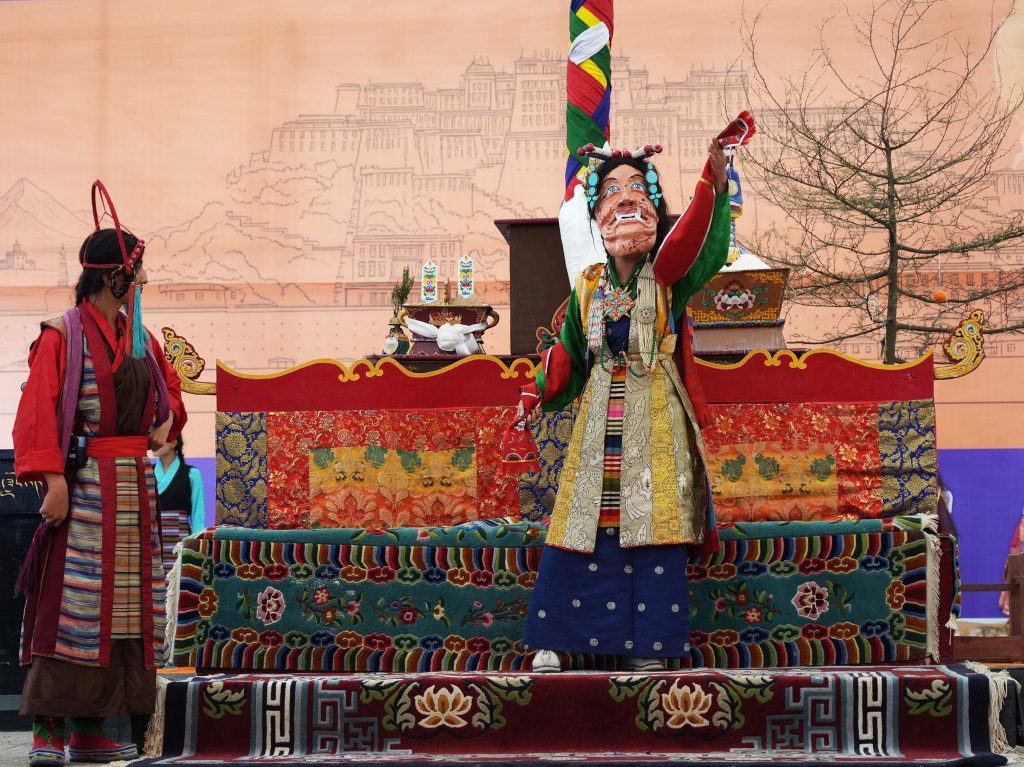
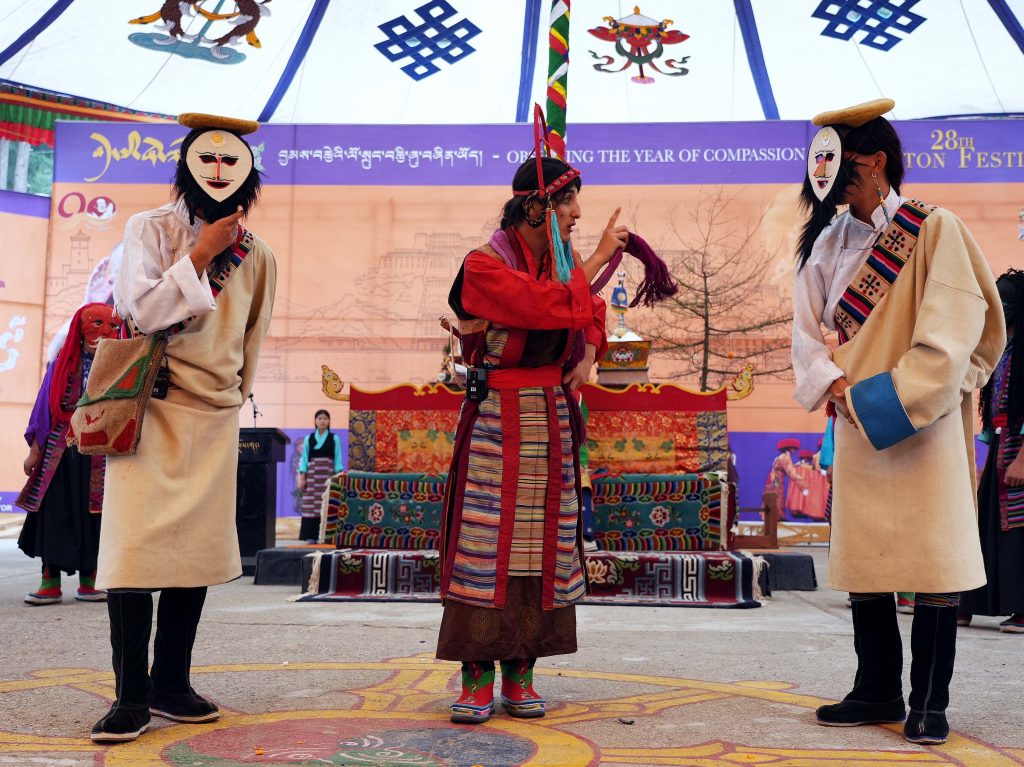
On May 20th, the closing ceremony of the 28th Tibetan Shoton Festival was held. The event was graced by the presence of H.E. Kunde Ling Tatsak Jedrung Rinpoche as the chief guest, with Ms. Gyari Dolma, Acting Sikyong (Political Leader) of the Central Tibetan Administration, serving as the special guest. Other honored guests included H.E. Nechung Kuten Rinpoche and Tulku Lhagyal Rinpoche. Also in attendance were leaders and secretaries representing the three pillars of Tibetan democracy, officials from the Gaden Phodrang office, and heads of governmental and non-governmental organizations, school principals, and over one thousand members of the public.
The ceremony began with a speech by Dhondup Tsering, Director of the Tibetan Institute of Performing Arts (TIPA). He noted that while the Shoton Festival previously received some funding from USAID, this support has been discontinued under the new US administration. Despite this setback, TIPA succeeded in organizing the festival—particularly significant this year, which marks the 90th birthday of His Holiness the Dalai Lama according to the Tibetan calendar. TIPA and opera troupes from across the region were able to celebrate the Shoton Festival in Dharamsala.
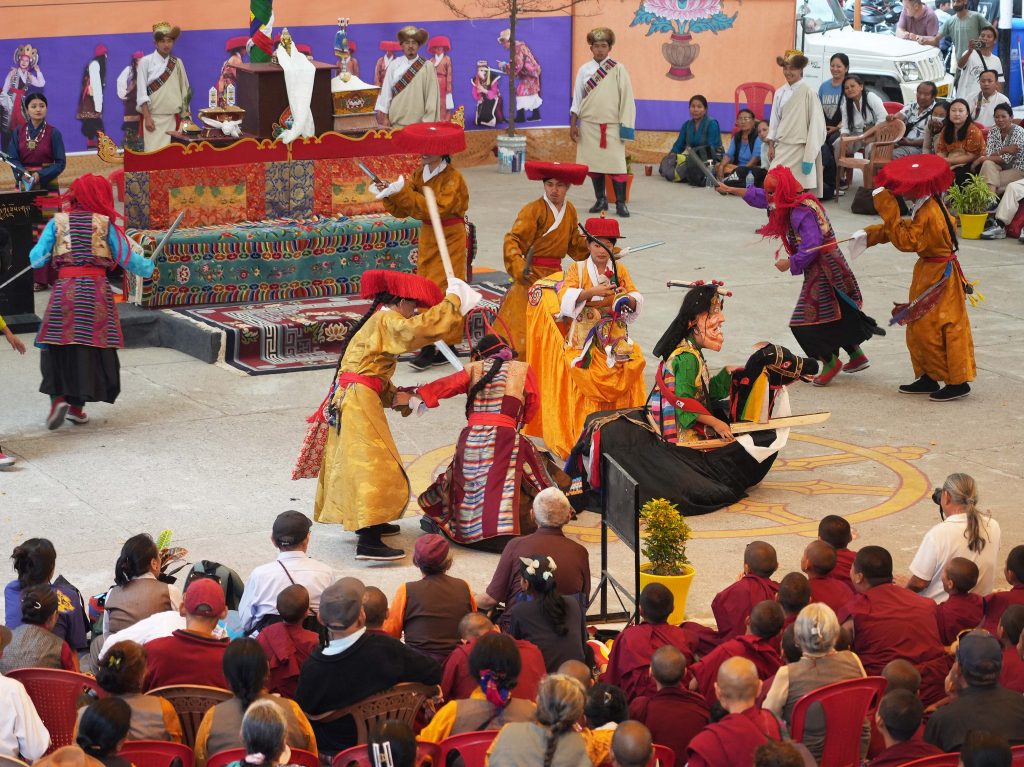
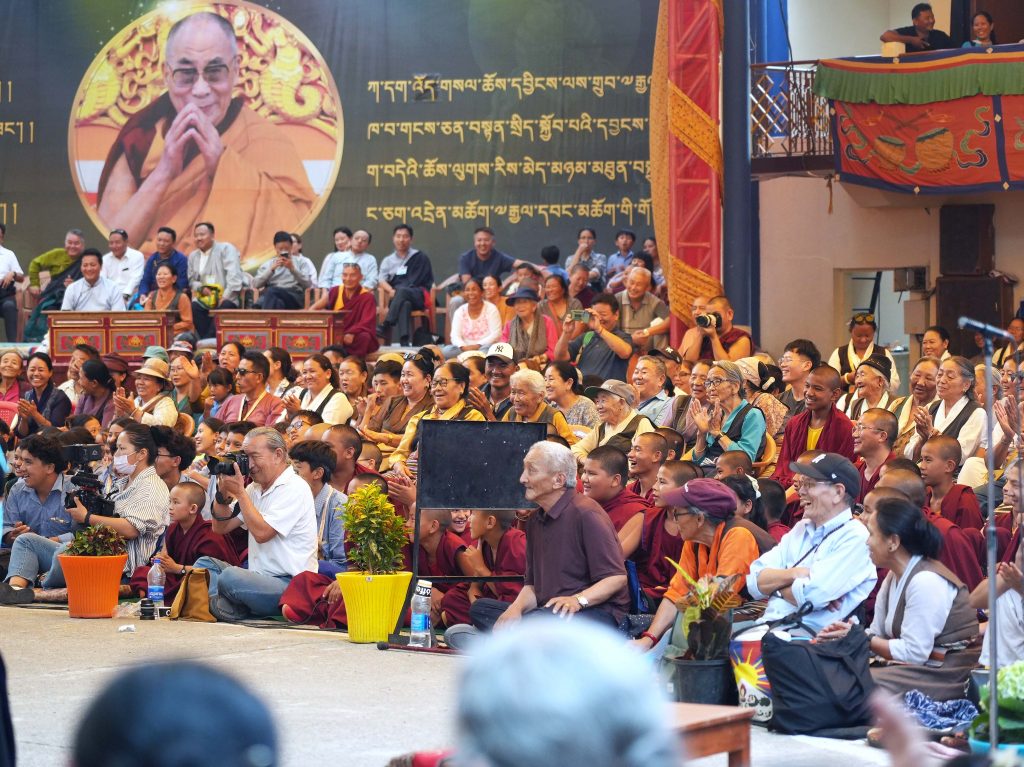
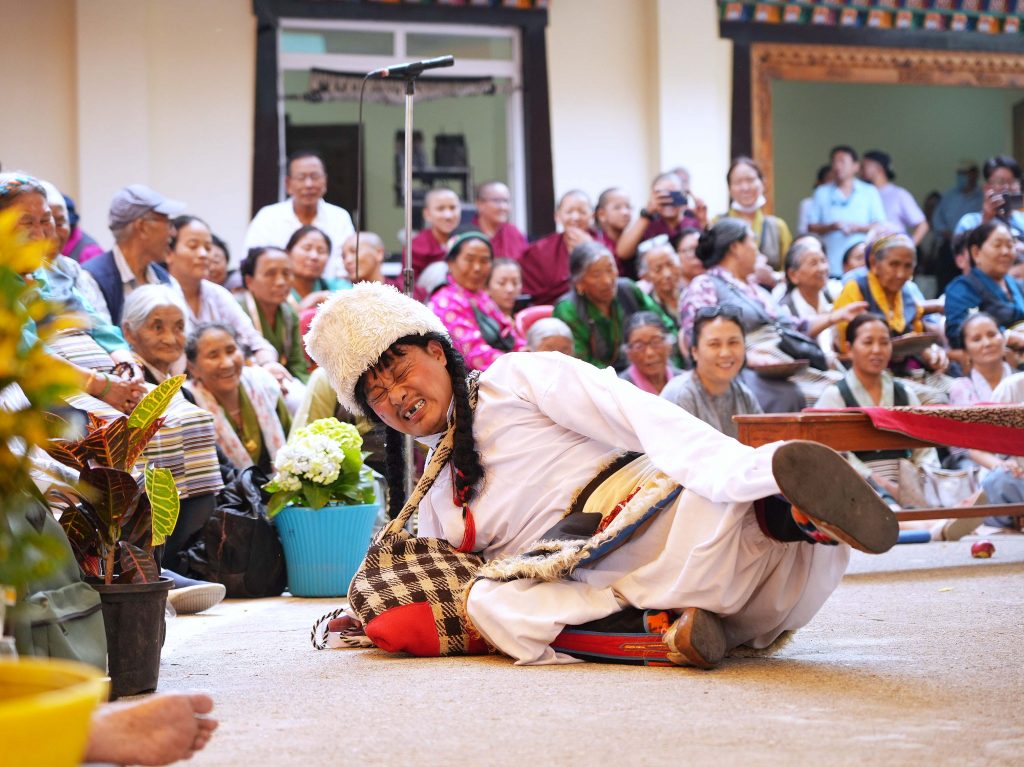
A highlight of the festival took place on May 10th, when all opera performers were granted a special audience with His Holiness the Dalai Lama at his residence. Representatives from each opera association offered ceremonial gifts, and His Holiness, in turn, offered his blessings and heartfelt advice. He expressed deep joy, remarking that the occasion reminded him of Norbulingka in Tibet. This was regarded as a great honor for both TIPA and the opera performers. The director reaffirmed TIPA’s commitment to preserving Tibetan opera and continuing the celebration of the Shoton Festival despite future funding challenges, in accordance with His Holiness’s wishes.
Following the speech, TIPA performed the opera Dowa Sangmo. After the performance, Acting Sikyong Gyari Dolma presented checks amounting ₹45,000 INR as Shoton participation support from the Department of Religion and Culture to the chairpersons of fourteen participating troupes.
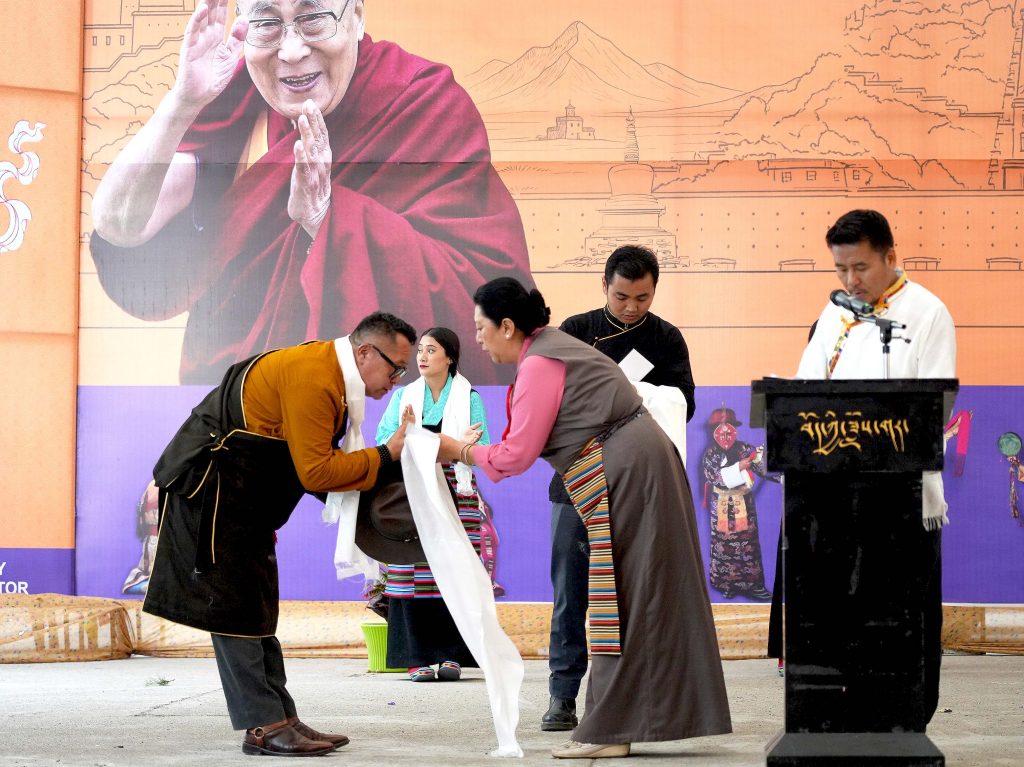
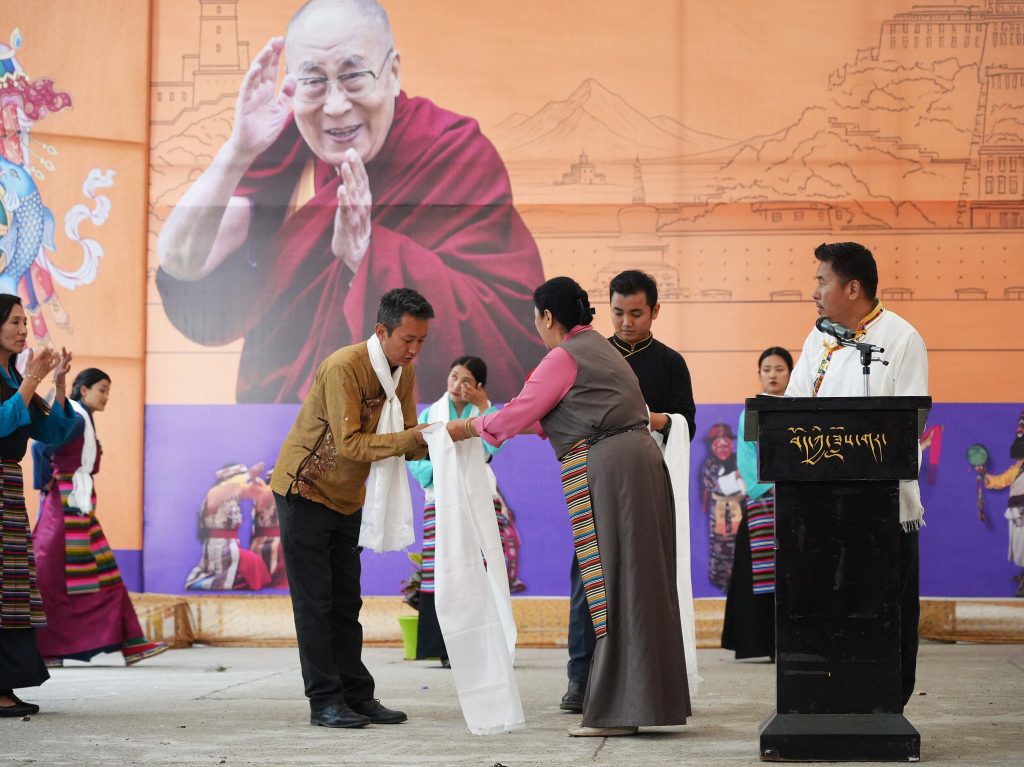
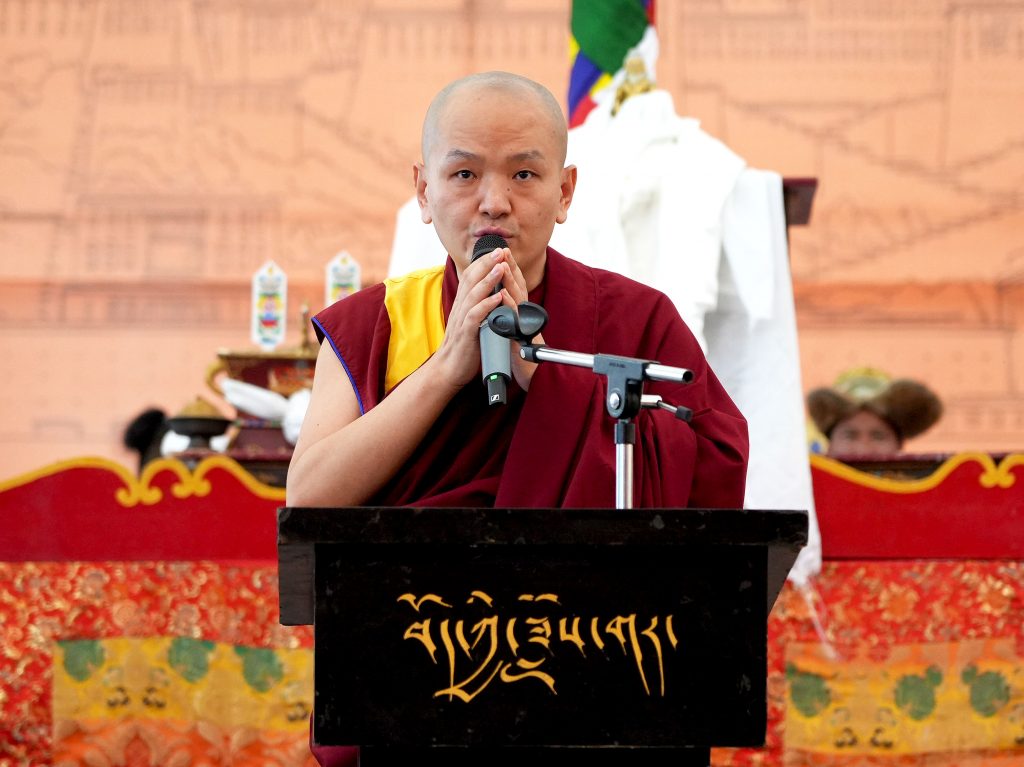
Chief Guest Kunde Ling Rinpoche then awarded certificates of appreciation—on behalf of the Department of Religion and Culture and TIPA—to individuals who have served in the opera associations for twenty consecutive years. In his address, Rinpoche stated:
“The Tibetan Shoton Festival holds historical significance and embodies our national customs and traditions. Tibetan opera originated in the 14th century. The previous Kunde Ling Tatsak had a deep interest in this art form, which conveys Buddhist teachings and social values through our unique cultural expression.”
He continued: “Since our exile fifty years ago, we have preserved our religion and culture without decline. Thanks to the compassion of His Holiness the Dalai Lama, many elders worked tirelessly to uphold the tradition of Tibetan opera, which remains a source of pride and resilience. It is especially meaningful that the 28th Shoton Festival was held in Dharamsala during the Year of Compassion, marking His Holiness’s 90th birthday, with over half the participants being students—this is truly a remarkable achievement.”
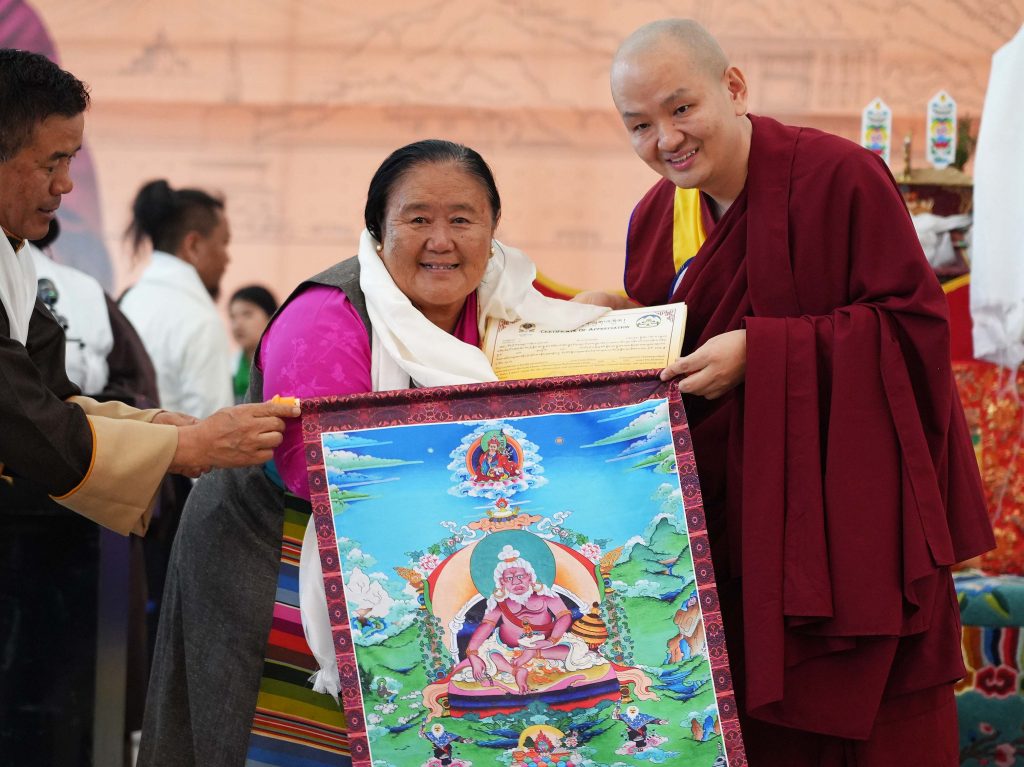
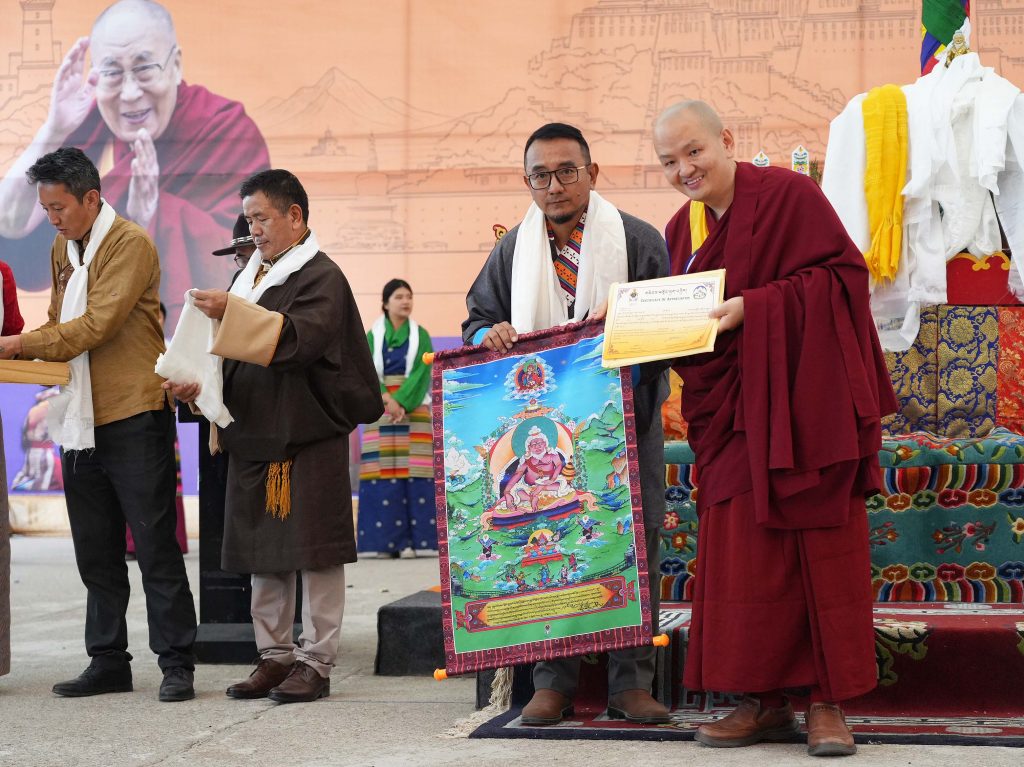
Tenzin Phuntsok, TIPA’s Artistic Director, concluded the ceremony with a thank-you speech.
The 2025 Shoton Festival ran from May 7th to 20th, featuring performances of eleven different operas by fourteen opera associations. With a total of 482 performers, this year’s event marked the largest gathering of opera participants to date. On May 21st, performers and association members began returning to their respective regions, marking the successful conclusion of this year’s Tibetan Shoton Festival.
